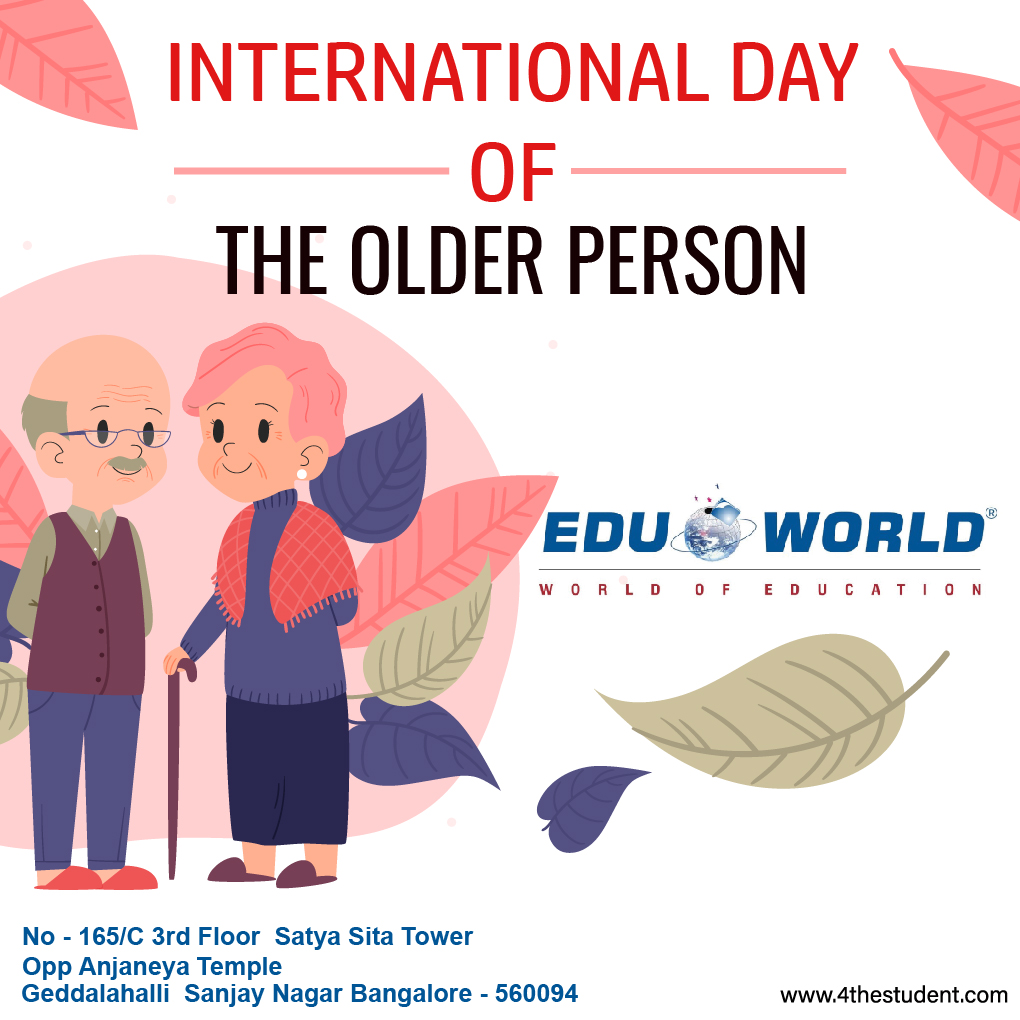Around the world, October 1 is observed as the International Day of Older Persons. The United Nations General Assembly established the day with the intention of recognizing the contributions of older people and investigating the issues they face. Volunteer work, passing on knowledge and experience, and assisting their families with a variety of responsibilities are all ways in which older people make significant contributions to society. On December 14, 1990, a resolution of the United Nations General Assembly declared October 1 to be the International Day of Older Persons. The day was established following the 1982 adoption of the Vienna International Plan of Action on Aging by the World Assembly on Aging. The UN Principles for Older People were approved in 1991 by the UN General Assembly. The Madrid International Plan of Action on Aging was adopted by the Second World Assembly on Aging later in 2002.It was done to promote the growth of a society for people of all ages and to address and comprehend the opportunities and challenges that older generations face in the 21st century. The elderly has always enjoyed special social status and been held in high regard in African culture. They have an impact on who we are and what we want to be and are a source of wisdom. The International Day of Older Persons is a significant occasion to honour the lives of our elderly and to emphasize the benefits and drawbacks of getting older. The World Health Organization (WHO) made the announcement in August that between 2000 and 2019, Africans’ healthy life expectancy increased by an average of 10 years per person. This rise is greater than any other region’s during the same time period anywhere else in the world. Africans now have a life expectancy of 56 years. Despite the fact that this is still lower than the global average of 64 years, it reflects advancements in reproductive, maternal, new-born, and child health, as well as significant progress in the prevention and treatment of infectious diseases like HIV and tuberculosis. The theme for this year, “Resilience of Older People in a Changing World,” brings to mind the significant contributions that older people still have to all of our lives. For instance, many retired health professionals returned to the workforce during the COVID-19 pandemic to assist in community protection. Millions of families in Africa also heavily rely on elderly relatives to take care of grandchildren and bring in much-needed income. In light of the United Nations’ designation of 2021–2030 as the Decade of Healthy Ageing, this day also serves as an opportunity to raise awareness of the significance of ensuring that no one is left behind. In order to develop comprehensive, meaningful policies that move us closer to achieving universal health coverage across the continent, it is essential to consider the voices, perspectives, and requirements of our elders. The Decade of Healthy Aging is a global initiative that is in line with the Sustainable Development Goals’ last ten years. In order to improve the quality of life for older people, their families, and the communities in which they live, it brings together representatives of governments, civil society, international organizations like WHO, professionals, academics, the media, and the private sector. The majority of the world’s more than 1 billion people over 60 live in low- and middle-income nations. The unfortunate reality is that many people do not have access to even the most fundamental resources for living a life of meaning and dignity; the pandemic has also brought to light the seriousness of policy, system, and service gaps. The pandemic has also highlighted the urgent need to prioritize the safety of our aging population, who are particularly vulnerable in times of crisis, as older people are at higher risk for severe illness and death from COVID-19.
Edu world on this day make a commitment to make the fundamental changes that are required to promote healthy aging on this International Day of the Older Person. The need to work toward age-friendly environments free of social and physical barriers is one of the four areas of action; to stop ageism from being a problem; to guarantee the availability of high-quality essential health services; and to provide resources for rehabilitation when they are required.
Let us make a commitment to working with older people in all of their different ways so that we can hear and amplify their voices and, ultimately, make the progress that is so necessary.




